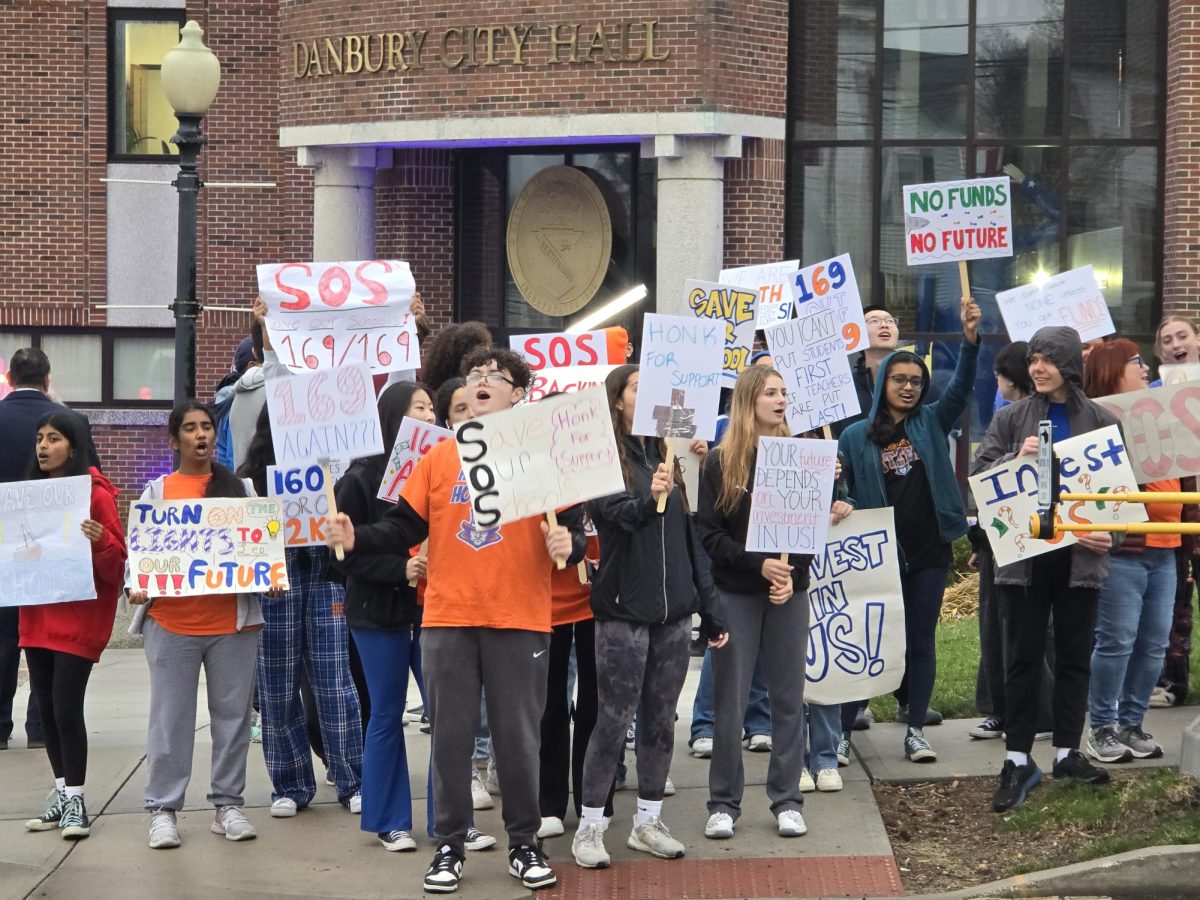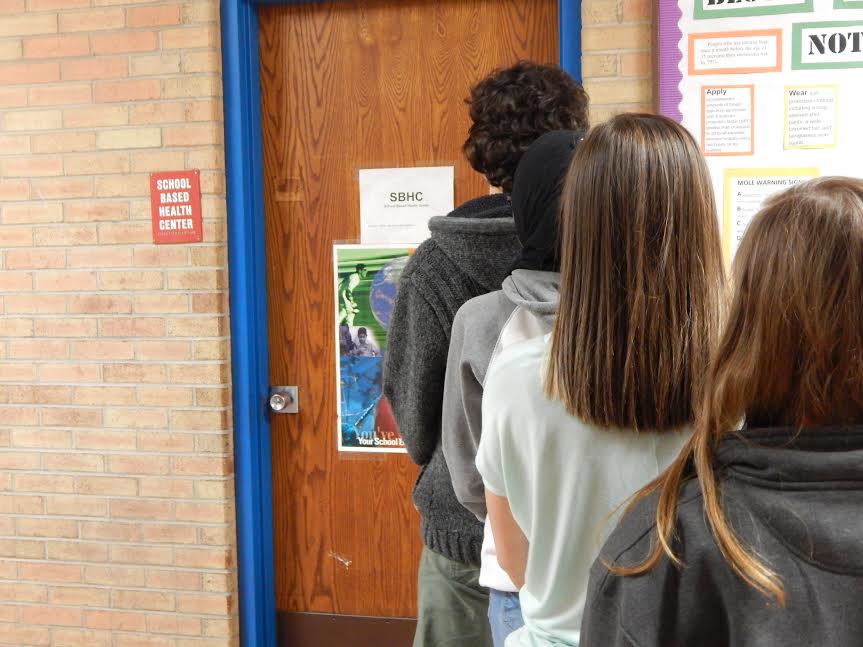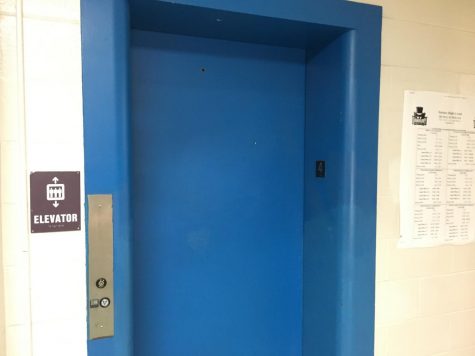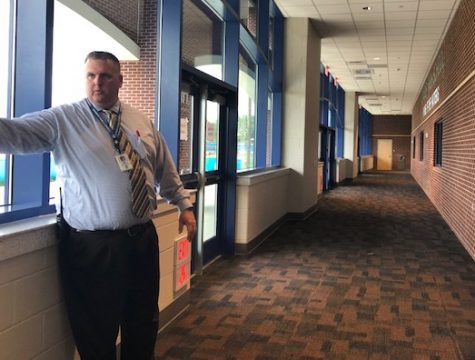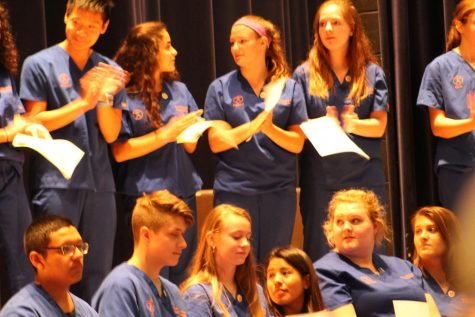Lack of student resiliency debated at high school level
December 4, 2015
Recent observations at the collegiate level have caused students and faculty at the high school to speak out about the decline in resiliency among this generation of teenagers.
Peter Gray, Ph.D., explores the subject of student resiliency and recent studies conducted dealing with the issue in “Declining Student Resilience: A Serious Problem for Colleges. It is published online in a recent issue by Psychology Today.
He explains that colleges are finding themselves scrambling to find ways to help and respond to students who cannot seem to cope with life’s everyday ups and downs.
Counseling has doubled over the past five years because students are increasingly seeking help for, and having emotional crises over, problems of everyday life.
Faculty had noted that students’ emotional fragility has become a serious problem when it comes to grading. Some even said that they had grown afraid to give low grades, even when deserved, because of the consequential emotional crises they would have to deal with.
“I think there is some truth to that,” said Crisis Counselor Stan Watkins.
Watkins has worked with students both at the high school and college level for a number of years.
“I think a lot of times teachers themselves are afraid to fail and they don’t want to see their students fail either, because they think it might be a reflection on them. But also, I think they are compassionate towards the students, knowing that they need that grade, knowing that they need to succeed.”
You may have already found yourself acquainted with the student who views a B+ as a failure, or maybe this is you.
If so, then you’re also familiar with the seemingly life-halting existential crisis that follows a B or C on an assignment that you thought to have been an A.
“I do agree that students can’t deal with failure anymore,” said senior Mariza Lobo. “There’s so much pressure to be successful, which does not entail B’s or C’s. I know, from experience, that receiving a lower score than what you anticipated feels like failure,” she explained.
Struggling to cope with lower grades than they are accustomed to, students have developed the tendency to blame their teachers, saying they weren’t explicit enough in telling the students what the test or assignment would cover.
“I believe students blame the teachers to avoid blaming themselves and to deviate from the idea that, even after countless hours of studying, they still failed to receive an A,” said Lobo.
Others utilize their failure as motivation to receive a better grade next time.
“I look at what I did wrong and try to learn from it so I will not make the same mistake,” said Natalie Mathews, junior. “To me, my grades are the reflection of my education. If my grade is low that means I’m not obtaining the knowledge I want,” she confessed.
DHS faculty has also noticed that students respond to low grades through total withdrawal from school related activities.
“I see it happening a lot of times with very bright, very intelligent students,” said Watkins. “They reach a level where they plateau and they can’t perform at the level they think they should be, not necessarily at the level they should be.”
Why would someone who appeared to have the world at their feet suddenly call off everything that made them passionate in the first place?
“It has to do with the times we live in,” said Watkins. “Most students now are thinking if they don’t go to college they won’t be successful, so everything they do is geared towards getting them into that type of educational track.”
This pressure may not cause all students to necessarily crack, but it is certainly inflicting a scratch or two.
“Think of it like this, I get anxious about every assignment because each one means something,” confessed Liz Quezada, senior. “It’s just this big competition in which individuals have their own tactics and different methods when trying to obtain a higher grade than the person sitting next to them.”
Observations are also pointing to overprotective parents as the root of this weak student resiliency.
Believe it or not, many adults have deprived their children of the skills to soothe themselves as a result of years of constant companionship.
In a more derogatory and worldly sense, too many parents are guilty of hand-holding.
“Parents sweep in because they are so anxious to get them on the path to college that they just say ‘Oh I’ll do it for you,’” said guidance counselor Karen Chance.
Despite the little gray cloud of obligation that has been featured looming over hopeful college applicants, there are still some students who believe this lack of resiliency does not even exist.
“I don’t believe students lack resiliency,” said senior Melanie Roesing. “I think that what we lack in is support, whether it be from our families, peers, or teachers. Many teachers only care about their class, not realizing or maybe not even caring that we have about four to six [other classes] that we want to do just as well in.”
While the existence and impact of weak resiliency might remain unclear to some, Watkins admitted that “Some students just can’t handle being ordinary.”

